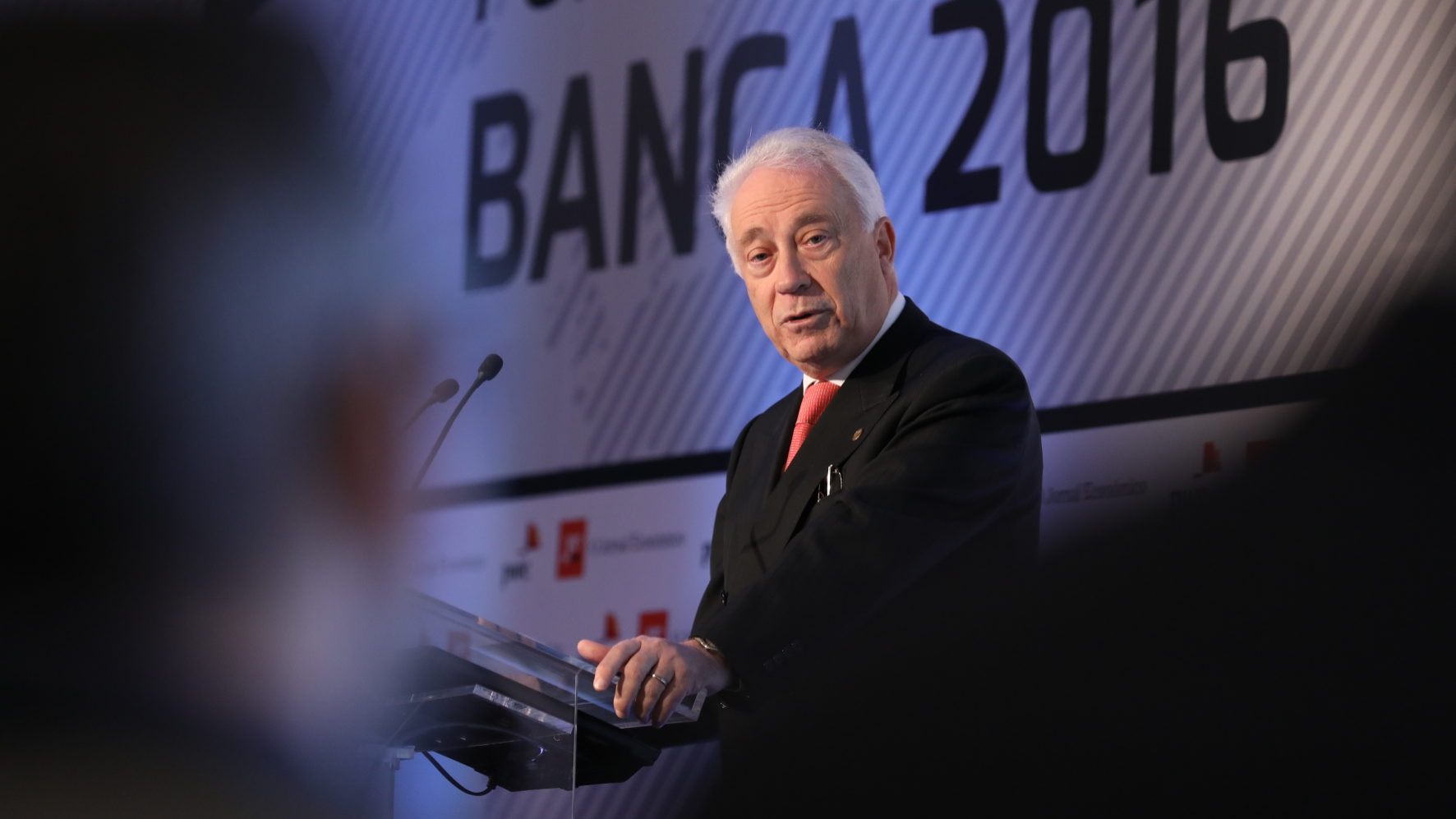‘European Commission should issue debt’ – Vitor Constâncio
"A quick way to have common European debt to finance expenses to face up to the crisis would be to resort to the European Commission to issue bonds to finance exceptional programmes," Constâncio says.
The former vice-president of the European Central Bank Vítor Constâncio said he believes that the European Union’s most rapid and effective economic response to the crisis caused by the Covid-19 pandemic would be to put the European Commission itself in debt.
In a series of publications on Twitter, the former governor of the Bank of Portugal argued that “a quick way to have common European debt to finance expenses to face up to the crisis would be to resort to the European Commission to issue bonds to finance exceptional programmes”, as this is contemplated in the current legal framework and would save the most fragile member states from becoming even more indebted and in a situation of fragility in the markets.
According to Constâncio, this possibility ‘fits in’ with the current EU budget rules, under the emergency clause of Article 122.2 of the EU Treaty, which stipulates that when a member state is in difficulties or is seriously threatened with difficulties caused by natural disasters or exceptional occurrences beyond its control, the Council, on a proposal from the Commission, may, under certain conditions, grant financial aid from the Union to the member state concerned.
As for the possible joint issuance of debt through so-called ‘coronabonds’, the economist pointed out that, without resorting to the European Commission and the EU budget to help all countries quickly and effectively, such a scenario would imply creating a new legal framework and asking some institutions (e.g. the ESS) to provide the service of organising the issuance and preparing the transactions.
Constâncio pointed out that, unlike the “SURE” support programme proposed on Thursday by the EU executive – consisting of a 100 billion euros fund for loans to member states to support temporary employment support schemes and preserve jobs during the crisis created by Covid-19 – the concept he advocates would be not to lend to countries, thereby increasing their debt, but rather to share the burden and assume member countries’ budgetary spending, for example on health or unemployment benefits.
He argued that, additionally, the same path could be used to create a real Investment Plan for Europe later, this time with significant public money involved to attract private investment, arguing that this stimulus is necessary because the recovery after the health emergency will be slow.
Regarding the most discussed possibility within the Eurogroup, that of activating lines of credit from the European Stability Facility (EEFF), the permanent bailout fund for the eurozone, he said that its programmes do not seem particularly attractive, as they would be used only by weaker countries, which would create a stigma and a bad signal for the markets.
For Constâncio, the ESS could be useful, but later, if the crisis lasts longer – and with programmes with conditionalities adjusted to the current crisis and very different from some cases of financial assistance from the not too distant past – so this institution should not be demonised either, as is happening in some countries.
Following the last European Council by videoconference, at which the 27 member states’ differences on how best to respond economically to the crisis caused by the outbreak of the new coronavirus were visible, the Eurogroup will hold another extraordinary meeting on 7 April, with a mandate to finalise concrete proposals to be presented to European leaders.

